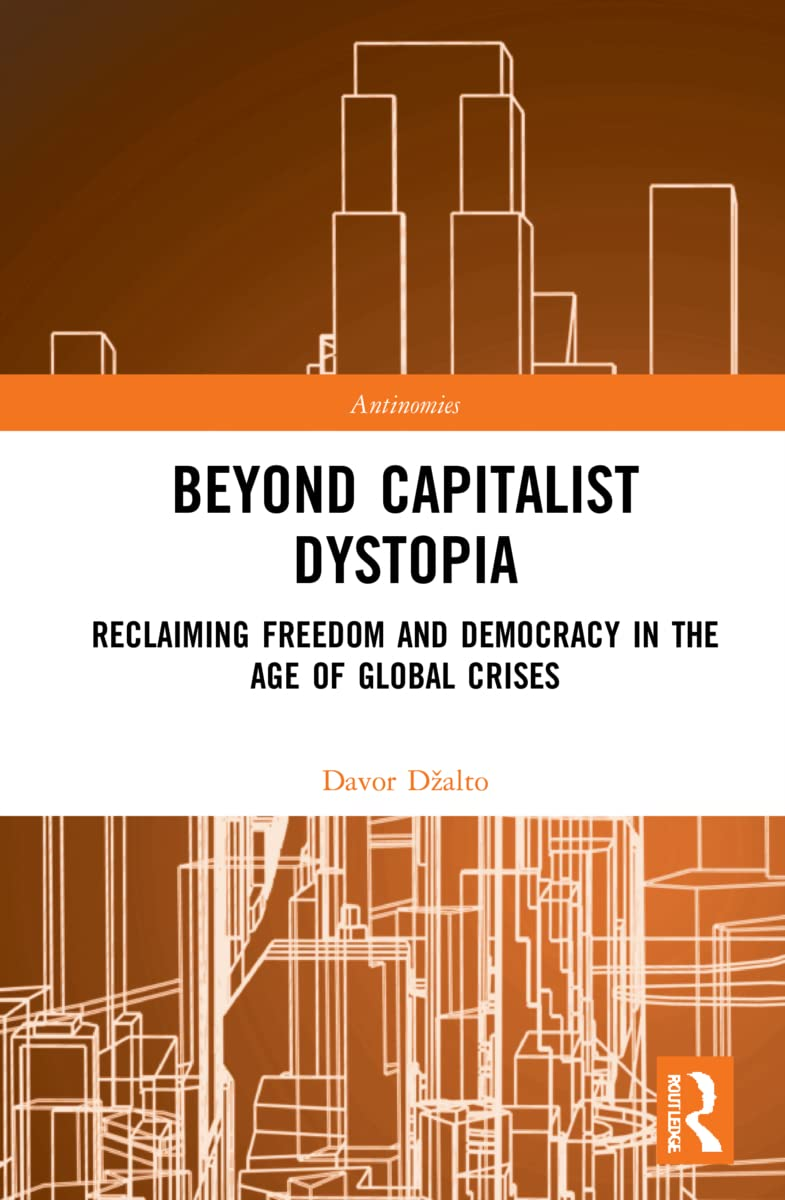Beyond Capitalist Dystopia:
Rethinking Freedom and Democracy in the Age of Global Crises
Summary
This provocative book interrogates the ideology of capitalism as the “default” narrative underpinning various mainstream ideologies in the contemporary world. The book explores the genesis, structure and functioning of this ideological narrative, provides its critical assessment and outlines a possible alternative, beyond the logic of capitalism and toward a truly free and democratic society.
The book takes a broad view of the major global challenges, including the COVID-19 pandemic, and persuasively argue that, in order to resolve any of the major global problems, from the ongoing ecological crisis to economic and geopolitical issues, we need to confront the capitalist system. To unpack the logic of contemporary capitalist ideology, and the way it structures our inter-personal and political relations, the book gives an analysis of the “end of ideology” narrative and offers a critical assessment of the ideas behind the widely used but fundamentally flawed concept of “Liberal democracy.” The book revisits metaphysical foundations behind the ideology of capitalism, exposing their secular-religious dimension, and their immanent oppressiveness. Based on this deconstruction of the metaphysical foundations implicit in (Neo)Liberalism and capitalism, the book offers a way in which alternative metaphysical foundations can be constructed to allow for different socio-political and economic models that would be based on a radical affirmation of freedom and democracy, as well as human responsibility for the natural environment.
Beyond Capitalist Dystopia: Reclaiming Freedom and Democracy in the Age of Global Crises will be of great interest to anyone searching for alternatives to the pervasive ideology of capitalism as well as students and researchers active in various fields in the humanities and social sciences.
Reviews
“In this wide-ranging and provocative book, Džalto masterfully synthesizes a set of urgent insights from moral philosophy, social science, and humanist common sense. It raises urgent questions for citizens, scholars and practitioners alike on their roles in perpetuating a needlessly cruel and irrational social system. Džalto stimulates the reader to reconceptualize her understanding of society and human nature as such, hopping effortlessly from the contemporary health crisis to 18th Century debates over Lutheranism to underline recurring themes and category errors. Reminiscent of Albert Hirschman’s Passions and the Interests and Thorstein Veblen’s Theory of the Leisure Class, this important work resurrects the forgotten debates over capitalist ideology and democratic community – all with the passion and humor of a young Karl Marx. The tired debate over the tension between democracy and capitalism has received a glaring rejuvenation in this extraordinary treatise.” Danilo Mandić, Lecturer in Sociology, Harvard University, USA



